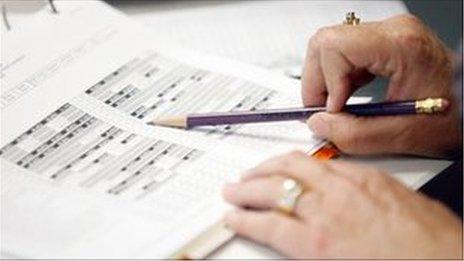Education: Department seeks single transfer test by 2017
- Published

There are currently two separate tests run by the Association of Quality Education (AQE) and the Post-Primary Transfer Consortium (PPTC)
The Department of Education (DE) has begun a formal process to find a common transfer test.
The BBC understands that the DE's aim is to have a common test in place by November 2017.
The DE have appointed Professor Peter Tymms, from the school of education at Durham University, to lead the initiative.
It is called: "Towards a common assessment for the purposes of academic selection".
However, Education Minister Peter Weir told the DUP conference at the weekend that he could not "impose" a state-run test.
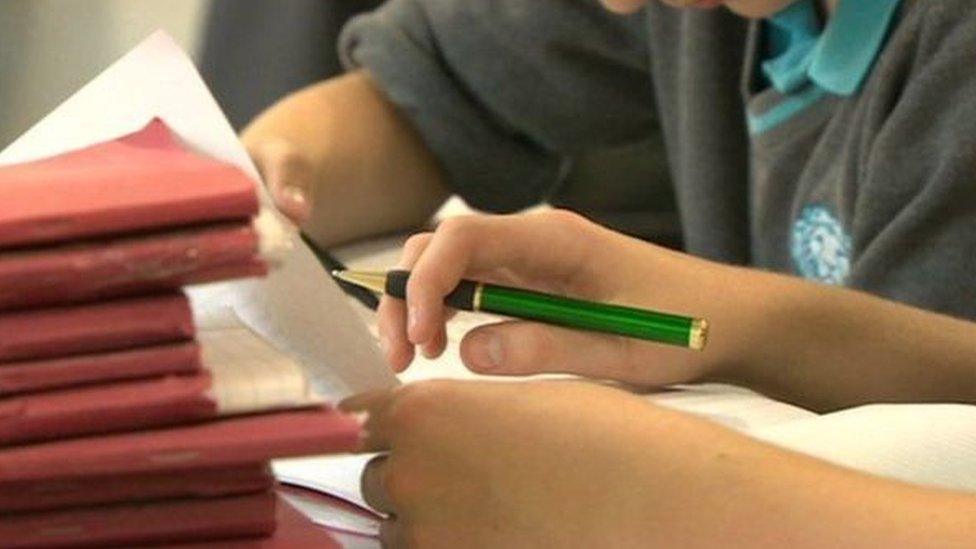
Some grammar schools in the Catholic maintained sector recently announced that they will no longer decide their intake by academic selection
"I have started work with the two testing organisations to see what common ground can be found, with the aim of agreement being facilitated between them," he said.
Mr Weir told BBC Northern Ireland's Good Morning Ulster it was clear that while there would not be political agreement around a "state transfer test", academic selection was "here to stay".
"It hasn't gone away because there is a strong demand out there for academic selection," he said.
"It is clear that academic selection, whether you are in favour or not, is happening and it is here to stay.
"I want to try and make the system as easy as possible for the parents of children that are going through this, I think that is a laudable aim."
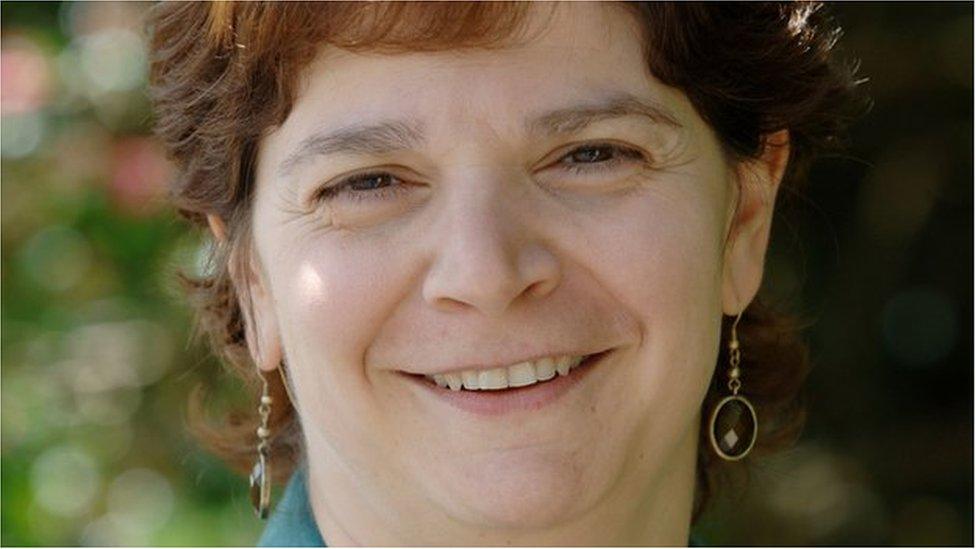
Northern Ireland's children's commissioner called the plans "extremely disappointing"
The commissioner for children and young people in Northern Ireland, Koulla Yiasouma, said root and branch reform was needed, not a "further sticking plaster".
"No parent wants to subject their 10 or 11-year-old child to the stress of a number of academic tests, but parents have no choice within the system as it currently stands.
"While it is preferable that within a system of unregulated tests, all children take a single regulated test, it is extremely disappointing that the vision for education in Northern Ireland is firmly fixed on the perpetuation of "academic segregation".
"We need the equivalent of health's Bengoa, we need to get into the crevices of our education system and agree a vision that will result in a system that delivers for each and every child - it far from achieves this at the minute," she said.
Currently, there are two separate tests run by the Association of Quality Education (AQE) and the Post-Primary Transfer Consortium (PPTC).
Primary school children aged 10 and 11 can choose to sit either test, both tests, or decide not to sit them.
They are used to decide which pupils are admitted to the vast majority of grammar schools.
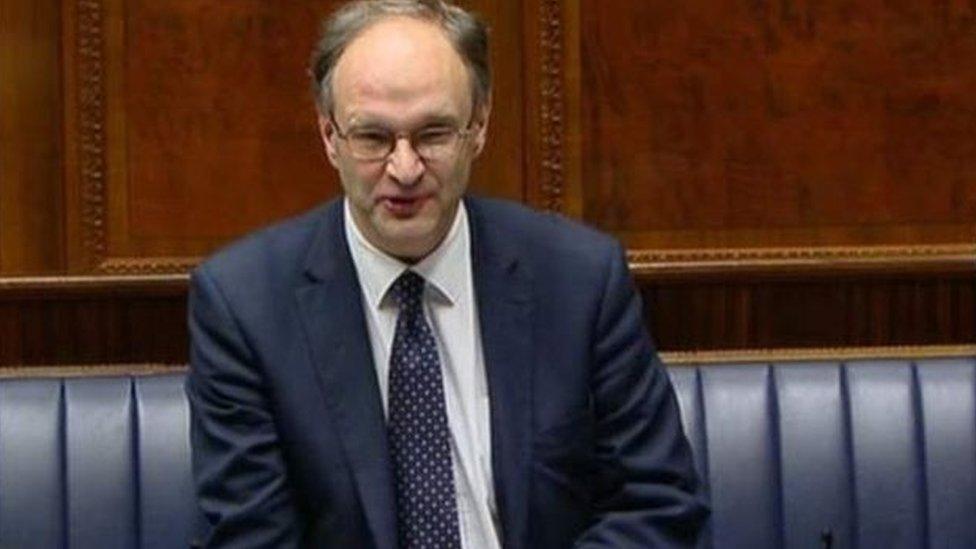
Education Minister Peter Weir told the DUP conference that he could not "impose" a state-run test
Some grammars in the Catholic maintained sector have recently announced that they will no longer decide their intake by academic selection.
This year's tests will be taken over five Saturdays in 2016, with pupils sitting the first AQE test on 12 November.
The final test is a GL Assessment exam, run by the PPTC, on 10 December.
Figures provided to the BBC by the two organisations, indicate a slight rise in the number of entrants sitting the tests in 2016.
There are, at present, 7,700 entrants for the AQE test, and 6,981 for the GL Assessment test.
That makes a total of 14,681, a rise from 14,575 in 2015.

The DUP's position on academic selection differs to their executive partners, Sinn Féin
However, both organisations said there may be a small number of late entries.
Around 2,000 children are expected to enter both tests.
Most grammar schools have been using one or both to select pupils since 2008, when the 11-plus exam was abolished by the then education minister, Sinn Féin's Caitríona Ruane.
Yet, the DUP's position on academic selection differs from their executive partners.
In September, Mr Weir changed long-standing DE policy by allowing primary schools to prepare their pupils to sit the tests.
Efforts to find a common test have so far failed.
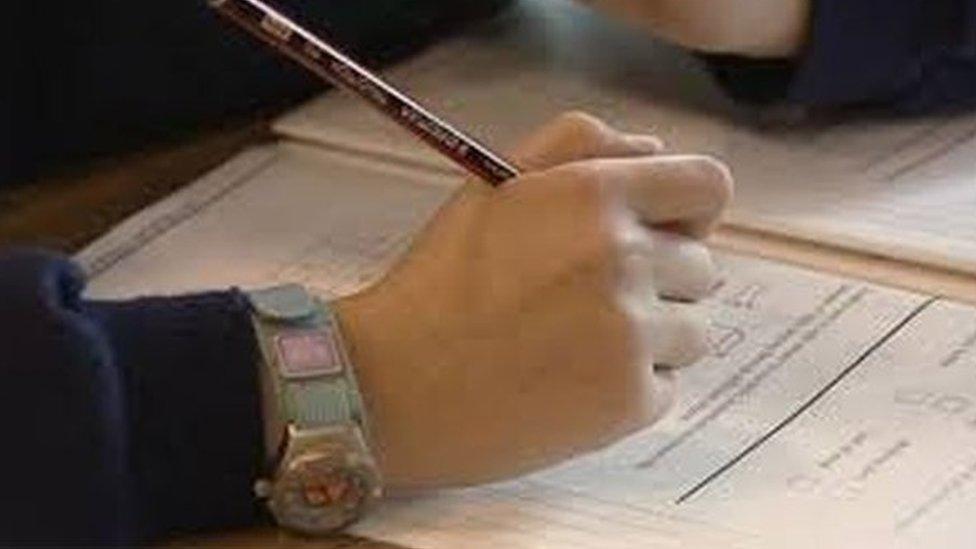
The DE have appointed Professor Peter Tymms, of the school of education at Durham University, to lead the initiative
The BBC understands that Professor Tymms will hold talks with AQE and PPTC in an attempt to agree a common test.
How the tests are paid for and what format they take are the main areas of difference between AQE and PPTC.
A representative from the PPTC told the BBC that they were "committed to working proactively and constructively towards a common assessment".
An AQE spokesperson said a formal response to the department's proposal would be issued "in due course".
"We are very much engaged in the process and want to move towards a single test," the spokesperson said.
- Published7 September 2016
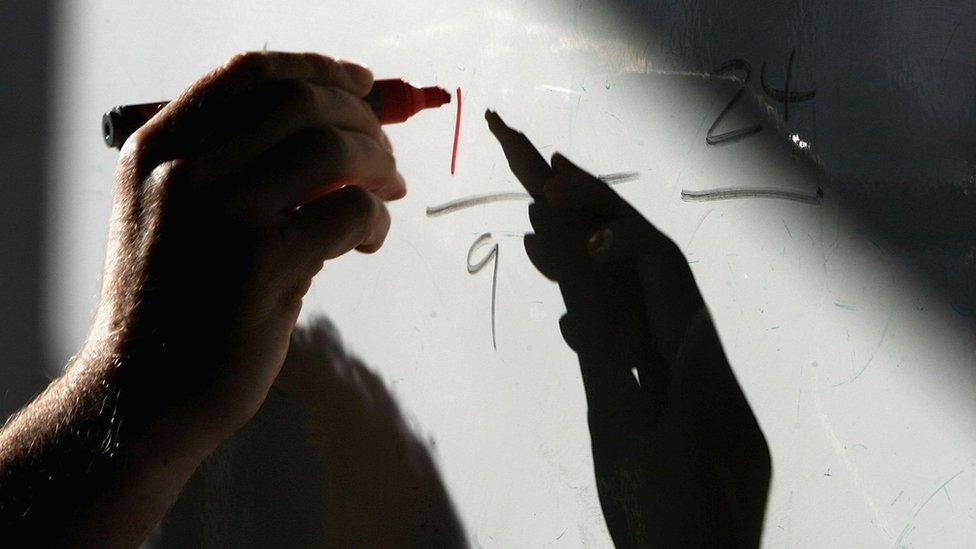
- Published7 September 2016
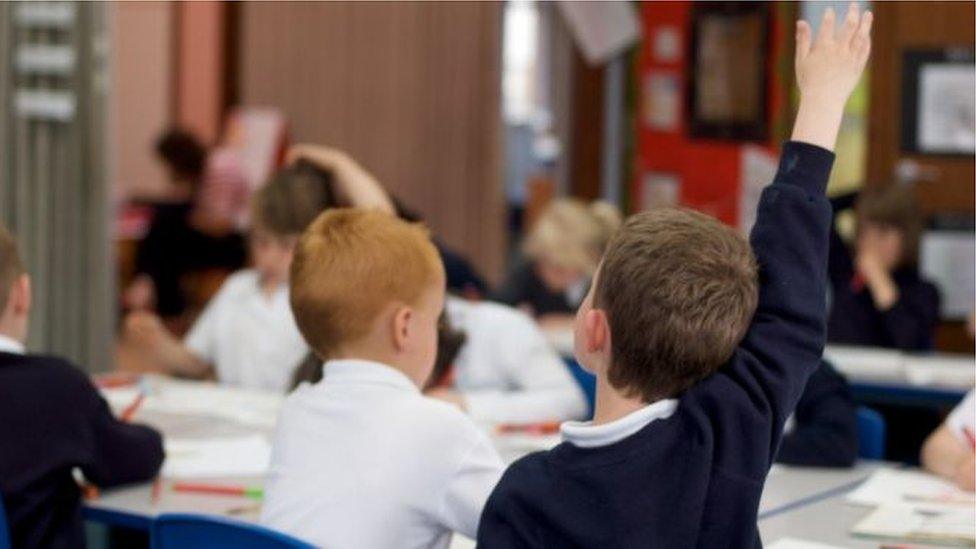
- Published2 June 2016
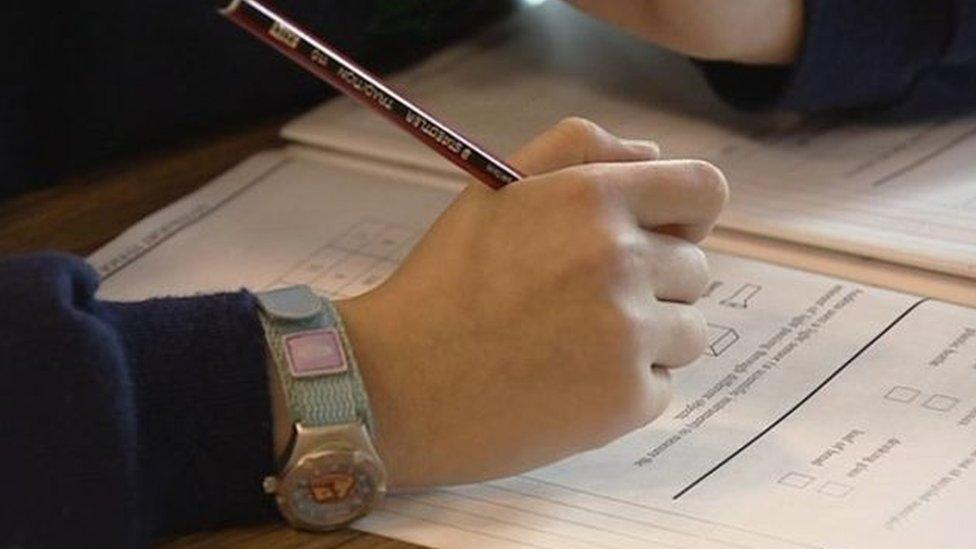
- Published27 May 2016
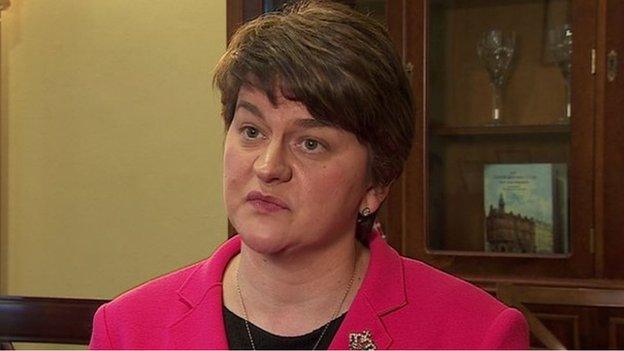
- Published25 May 2016
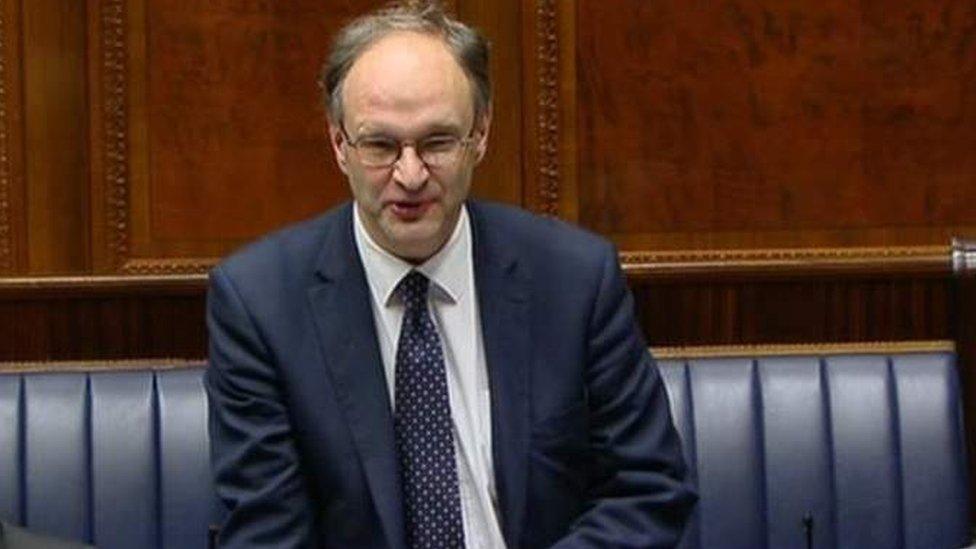
- Published30 January 2016
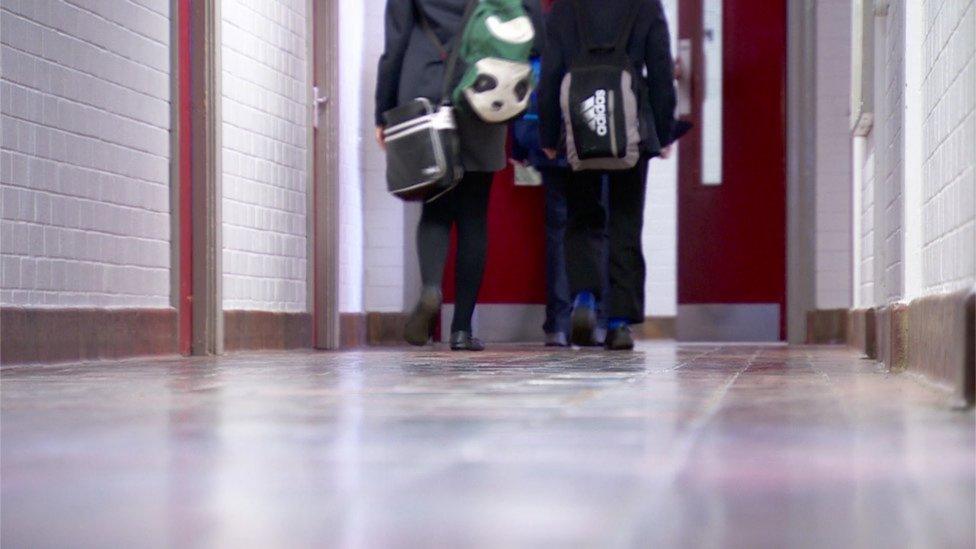
- Published29 January 2015
